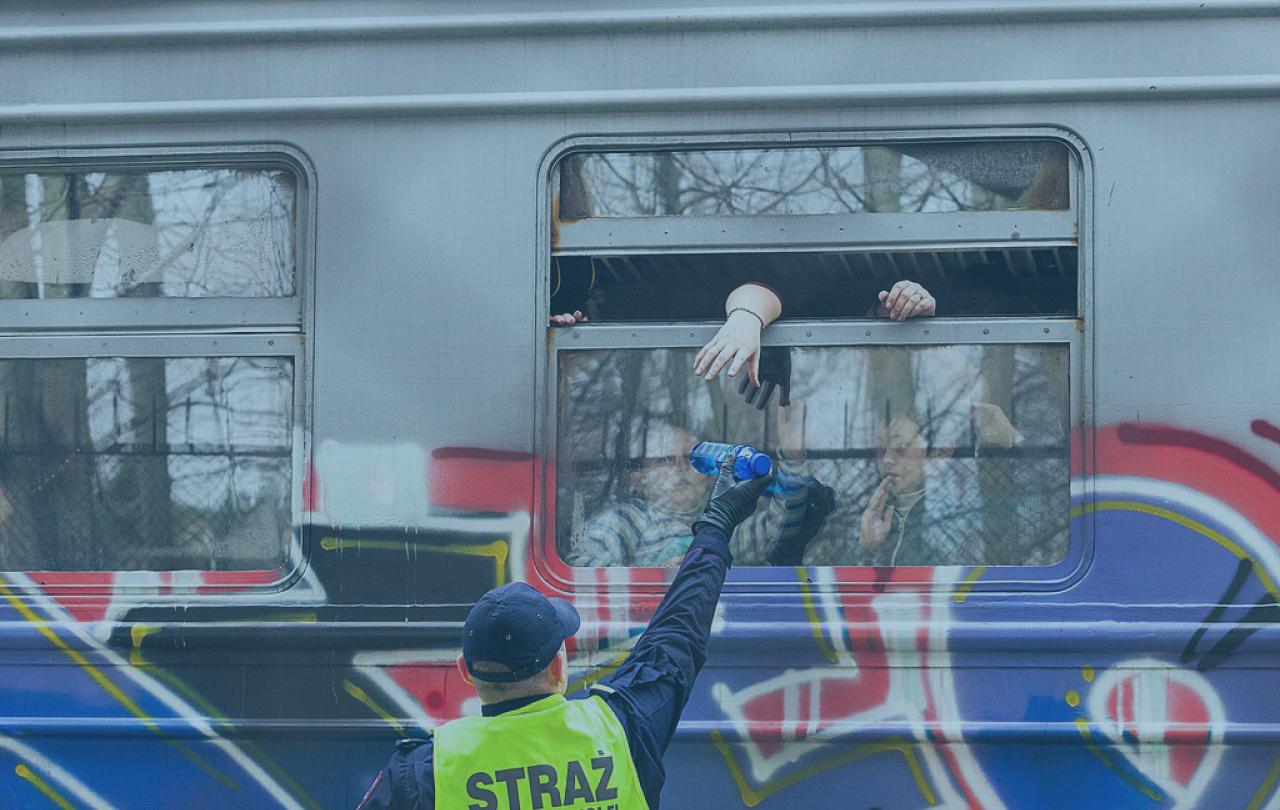How does one explain three million refugees in Poland but not one refugee camp? Even the experts find it hard. Dr Marc Gopin of the Carter School for Peace and Conflict Resolution at George Mason University, and a world expert on refugee crises, says in 30 years of work among refugees he has never seen anything like it.
In December 2022 I was visiting early responders near the Ukrainian-Poland border. One man (whom I’ll identify as Slawomir) was particularly heroic in his efforts to whisk fleeing Ukrainians to safety. Upon introduction, he asked if I wanted to know how he did it. I replied,
“What I really want to know is why? Why did you risk your livelihood, even your life, to rescue people whom you did not know? Indeed, even people with whom you share a hard and sometimes bitter history?”
He had no answer. He could only manage a shrug and murmured,
“I just had to.”
This conversation, with variations, could be told repeatedly. By all the accounts I’m aware of Poles are acting inexplicably heroically. It merits investigation and understanding beyond the anecdotal.
So why then has Poland played such a heroic role in this global crisis?
One answer I’ve by given Poles, is that they have experienced what the Ukrainians themselves are now going through. Their own history of PTSD has primed them to empathize with effects of the shock and awe of an aggressor’s invasion - indeed, of Russian invaders. A scholar at the Jagillonian University said to me of their two 20th Century invaders - the Germans and Russians - most Poles preferred the Germans. Having just visited Auschwitz I found that incredible. “Oh, the Nazi’s were wicked, but they were civilized in their wickedness. Russians show no constraint whatsoever,” she said.
Poles also know abandonment, such as when they fended for themselves as the neighbourhood bullies took turns pounding them. The 1944 Warsaw Uprising, ending in the razing of Warsaw, could have been averted if the West had intervened. But Poles were betrayed by those they believed were friends, or at least, allies. We weren’t. So, Poles are constitutionally unable to simply stand by and watch atrocities. But other European neighbours can and still do.
So what makes the Poles’ response so extraordinary beyond its rarity?
As we probe deeper - beyond collective experience - we hit Polish character. Character is durable. Ever since the late 18th century when Poland was partitioned by three neighbouring Empires (Prussian, Russian and Austria-Hungarian), Poles have been in survival or nearly survival mode. In the 1770s Swiss political theorist Jean Jacques Rosseau wrote an epistolary tract warning the Polish government that if these empires succeeded in “eating you then you must never let them digest you.” For nearly two hundred years the Poles learned that culture and faith keep a people together when even the state buckles. Culture and faith make a people indigestible. These lessons, learned in the crucible of multiple failed uprisings and even death camps, steel the Polish people to do the truly remarkable deeds the world now witnesses.
Poland’s long partitioning and occupation baked in their collective experience. At his recent visit to Kyiv and Warsaw American President Joe Biden singled out the Poles for their heroism. It was a first in this particular crisis.
But can we dig deeper still for an answer to why Poles have acted in such a remarkably generous manner?? For it’s not only singular and durable but it’s also a theological response. This answer requires a little history to absorb.
Many Polish people possess a heroic - even radical - hospitality. The ultimate cause of Polish homes, hostels and hotels welcoming the stranger can be proffered: their faith in God. The Poles have a saying:
“When a neighbour is under your roof then God is under your roof.”
In the 12th century Boleslav the Bold had Bishop Stanislav murdered while celebrating mass (let the English understand). The Poles turned against their king and embraced Stanislav as their martyr and patron. To be received back into the good graces of his people, Boleslav placed a Benedictine foundation in every Cathedral of the land. Rule 53 of Benedict’s Rule states that monks are to receive every stranger as Christ. The common saying of the Poles (if a neighbour is under your roof then God is under your roof) has its roots in this ancient act of royal penance. This Christian practice of hospitality was the core strategy of the Christianization of Poland. In the history of Benedictine evangelization through Christian hospitality we’ve finally hit the bedrock of the Polish response.





